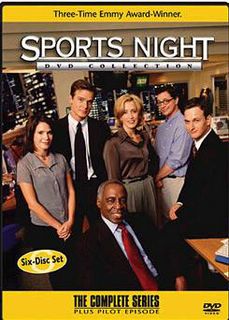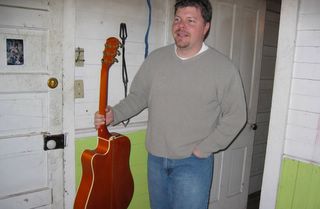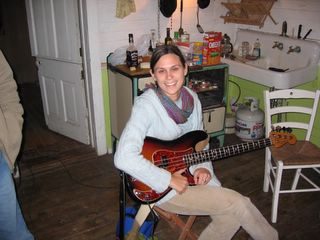I am not a big sports fan. I was never obsessed with sports; although there was a time in my life when I could at least hold up my end of a sports-related conversation. With the cultural shifts that have brought us the punch-throwing, beer-tossing, pill-popping, wife-beating, waitress-raping, rule-breaking, salary-skyrocketing, corporate-influenced kind of fun we used to know as games, I have reached the end of my tether. I don’t pay much attention to professional sports anymore.
I am not so naïve as to miss the fact that big-time college athletics falls prey to the same afflictions as the pros, but I am still a sucker for March Madness. I don’t keep up with college basketball during the regular season, but when it comes to tournament time, I get a little crazy…mad even.
So, I don’t know if it was the beginning of my annual sports addiction or the start of my new
Netflix membership (a good deal if you love watching great films and shows, and are cableless and disgusted by TV and Blockbuster), but I have recently become reacquainted with one of the best television shows ever made. My
Sports Night revival really began last summer when I was marooned in New Jersey for several weeks without my family. My friend and Rutgers grad student, Ben Johnson, loaned me the DVD box set to keep me company. I recommend it. Rent, buy, or borrow it; but see it soon.

Before Aaron Sorkin’s
West Wing, there was Aaron Sorkin’s
Sports Night. The show debuted on ABC in 1998 as a “dramedy” about a third-place sports show not unlike ESPN’s
SportsCenter.
The multiple Emmy-winner features the on-air stylings of glib co-anchors Dan Rydell (Josh Charles,
Dead Poets Society) and Casey McCall (Peter Krause,
Six Feet Under) who are supported by their energetic and intelligent producer Dana Whitaker (Felicity Huffman,
Desperate Housewives) and quirky associate producers Natalie Hurley (Sabrina Lloyd,
Numb3rs) and Jeremy Goodwin (Joshua Malina,
West Wing). The cast is held together by CSC executive producer, Isaac Jaffee (Robert Guillaume,
Benson and Broadway’s
Phantom of the Opera). During the second season, the cast is joined by the enigmatic ratings consultant, Sam Donovan, who is played by the veteran film actor (and Huffman’s husband), William H. Macy.
While much of
Sports Night’s success comes from this enormously talented cast; perhaps the real star of the show is Sorkin’s writing. Sure, it took a season or two of
West Wing before the general public got hip to Sorkin’s Mamet-esque obsession with rapid-fire dialogue. And, yes, maybe the dialogue can be a little too self-congratulatory in its speedy verbosity. But in a vast primetime wasteland where pratfalls, hijincks, and emotional gimmickry continually pander to the lowest common denominator, the
Sports Night banter is sweet relief. The dialogue doesn’t just push plot or reveal character, it sings.
"Any time you write words for performance, they have the exact same properties as music," says Sorkin. "There's rhythm, tone, pitch, volume. You'd be silly to ignore the sound of music."
Witness this exchange between Casey and Dan.
Casey: It's a vicious circle.
Dan: Yep. Just keeps going around and around.
Casey: Never stops.
Dan: That's what makes it vicious.
Casey: And a circle.
Or Natalie and Jeremy dealing with a relationship and a card game:
Natalie: How do you know I don't have a big house?
Jeremy: A FULL house. Dan already folded the six you needed, and I have the other one. You don't have a house of any sort; you don't even have a pup tent. You've got trip sevens, and I have a straight. I want you to trust me right now. I want you to say to yourself, yeah, I've dated a string of jerks in my life, they were stupid, they were mean to me, but maybe this one's different. Maybe I should take a chance and not adopt the break-up-with-him-before-he-breaks-my-heart strategy. I want you to remember that when I started liking you, I didn't stop liking tennis. And I want you to know that I don’t think there's a woman in the world that you need to be threatened by, no matter how glamorous you think she is. But mostly, I want you to trust me, just once, when I tell you, you have three sevens, and I have a straight.
It is just this smart blend of comedy and drama that distinguishes the show as a giant among its contemporaries. With the possible exception of
M*A*S*H, there has never been a show that so consistently prompted laughs and tears in a 23-minute time span. Most episodes contain an emotional crescendo that succeeds because Sorkin and the cast make it believable without resorting to manipulation or jokes.
A classic example is found in the pilot episode. Casey is recently divorced and depressed about the world of sports. He is thinking about leaving the show, because he is worried about the influence all the scandals and misbehavior are having on his young son. During the episode the staff decides to do a story about Ntozake Nelson, a 41 year-old South African distance runner, who had been jailed and tortured for years, and was running the 15,000 meters that night in the World Pacific Games. The network objects to them doing a segment on Nelson, but that night they all gather around the TVs in the newsroom watching Nelson win the race and set a new world record. Casey scrambles to a phone near the end of the race and calls his son.
“Son, turn on the TV. Turn on my channel. I want you to watch this guy named Ntozake Nelson run. I’ll tell you more about him later, but for now just watch him run faster than any human being ever has. If your mom will let you, you can stay up and watch the first part of the show when we talk about him. When I give you the signal, you need to turn off the TV and go to bed.” As he speaks, you can’t help but be buoyed by Casey’s reanimation: the belief that there is hope; there is good left in the world.
The show succeeds because it does well with workplace comedy, romance, and intrigue. But the show is great because it reveals grace. It reminds us that relationships are more important than…anything. The characters regularly rally around the one among them who is in need, even if it means sacrificing ratings. Whether it is Isaac’s stroke (Guillaume suffered a stroke in reality) or Natalie’s assault, the show testifies to a system of values that has been obscured by our current lust for profits and celebrity.
This spirit is apropos of the show’s demise. In spite of
Sports Night's quality appeal to comic nobility, it was cancelled after a mere two seasons. It could have had something to do with the lame laugh track (that was slowly phased out in the first season). The title could have been off-putting to non-sports fans (even though you don’t need to like or know anything about sports to enjoy the show). But I imagine it was the cognitive dissonance caused by the frenetic dialogue and the difficult-to-categorize nature of the show. The average viewer didn’t know what to do with
Sports Night. What is the show? Is it a comedy or a drama? How am I supposed to feel? Tell me what to think. I’m a sheep. Baahhahhahh. Baahhahhahh.
I don’t care to dedicate space and time analyzing the reasons Disney’s ABC made the boneheaded decision to cancel
Sports Night. I can only assume it didn’t satisfy the public’s appetite for mind candy.
"It's very difficult to do something new on TV," concedes Sorkin, who acknowledges that "especially with half-hour TV, you need to feel comfortable and familiar."
Sports Night, he says, "isn't actually very good background music. You need to give it attention, and maybe people don't feel like doing it."
Even though
Sports Night was smart without being inaccessible, funny without being gag-driven and serious without being maudlin, the American public’s short attention span and maddening addiction to consensus narratives doomed the show. Perhaps ABC’s strategy to repeatedly preempt the show for
Who Wants to be a Millionaire? and other asinine programming options had something to do with it as well. As a result, we never got the chance to integrate
Sports Night into our water cooler discussions or the cast’s pre-show wish and a post-production validation, “Good show” into our lingo.
I suppose the purpose of this post was to lament the loss of a great show. I know it is available on DVD, and until recently, those of you with cable could watch reruns on Comedy Central. It’s not that the show is unavailable; it’s that there won’t be any new episodes. And, I suppose it’s more than that: It’s that we live in a society that has become so addicted to the empty calories of reality shows and Must-See TV, that when they are served something of substance, they choke on it.
Perhaps this post is best ended with a line Casey delivers at the end of a broadcast:
“If you had half as much fun watching this show as we did making it, well, then we had twice as much fun making the show as you did watching it.”
Good show.









